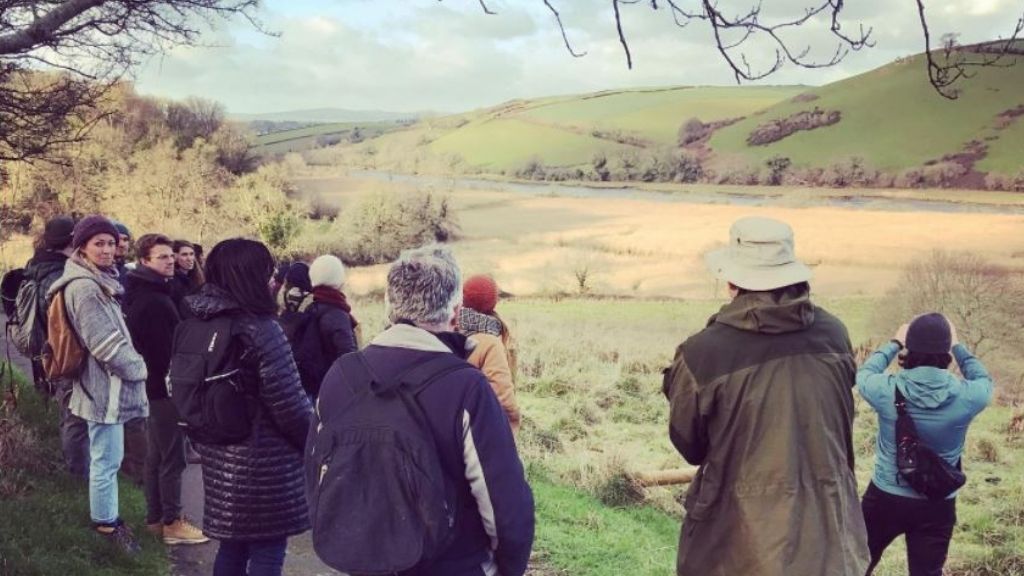
Many of our postgraduate degree students here at Schumacher College are invited to consider the ideas relating to rewilding, the method of land management that attempts to restore ecosystems through large-scale restoration.
To do so the current cohort of students on MA Engaged Ecology recently visited the Sharpham estate, where they considered the ecological, social and political complexities of rewilding in practice by taking a look at the work Ambios Ltd are doing at Lower Sharpham Farm. We explored the 80-acre organic beef and sheep farm, and found out more about their integrated approach, balancing the restoration of natural habitat with agriculture, while developing a valuable training and community resource.
Despite clear ecological benefits, and great sucesses seen at Sharpham, rewilding is not necessarily the best or the only option for bringing back nature to an area of land. And the term itself is not always as clearly defined as it could be. On our courses we try to offer students a balanced view through which they can explore in their own minds what might be right, and put the concepts to the test through practice. We also encourage students to consider the specific context, the place in question, and to think how any intervention, including the “intervention” of leaving nature to take its course, can have unintended as well as intended impacts.
Andy Letcher, the Programme Lead for Engaged Ecology, was on the trip:
“The idea of rewilding has become extremely popular of late, driven by impassioned Ted Talks and of course the phenomenal success of the experiment at the Knepp estate. However, behind the scenes there’s surprisingly little consensus amongst scientists and scholars about what exactly the term means. People are using it to refer to everything from a tightly managed conservation regime, to stepping away from the land altogether, through to the back-breeding and reintroduction of extinct fauna and megafauna.
On Engaged Ecology we examine the term critically to probe its assumptions and to reveal its social, cultural and political complexities. We visit a couple of local, contrasting rewilding projects that take very different approaches. What do we mean by this freighted word ‘wild’? What space there is for the human in a world that’s been rewilded?”
The kinds of questions the visit raised for our students included:
- What do we mean by ‘rewilding’? Is there any agreement over what it entails?
- Is rewilding just another form of conservation management?
- What was wrong with ‘conservation’ that it required upgrading to ‘rewilding’?
- What do we mean by ‘wild’ anyhow?
- What role is there for the human in rewilding?
If you are interested in searching for answers to these questions and getting involved in research into this subject, then why not take up a course yourself at Schumacher College? You can study Regenerative Food and Farming at undergraduate level with us this September, or click the links to relevant postgraduate degrees via the buttons below.
